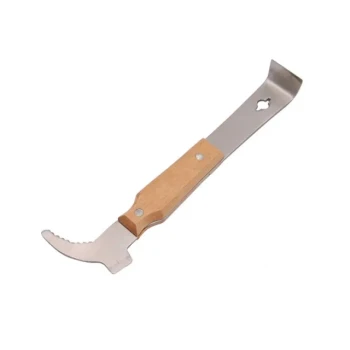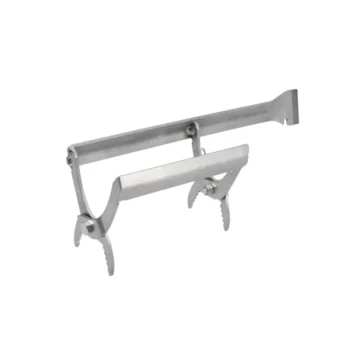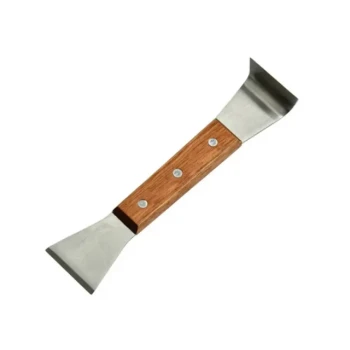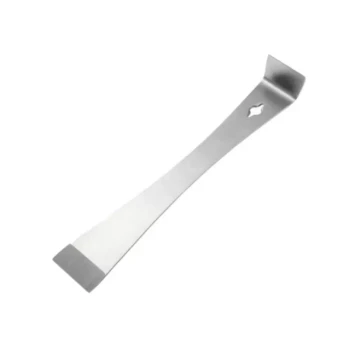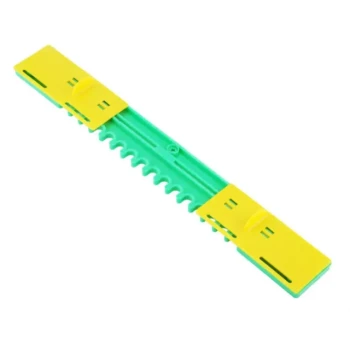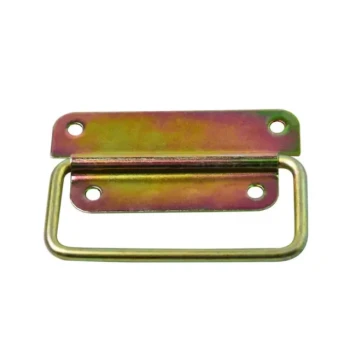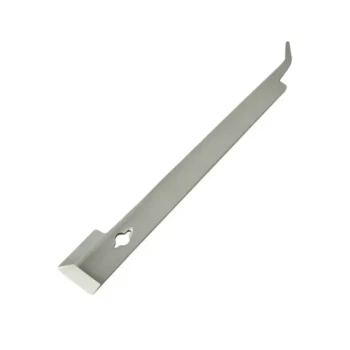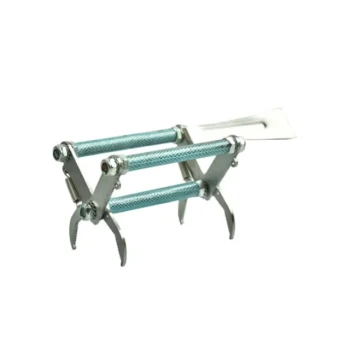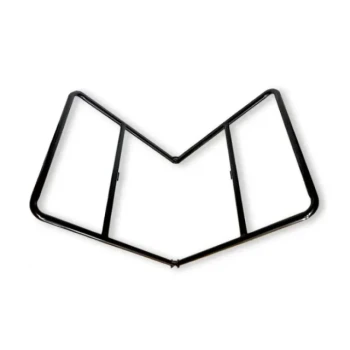The fundamental advantage of a nucleus hive is momentum. Unlike a package of bees, which provides the raw components for a colony, a nucleus hive (or "nuc") delivers a small, fully functional, and established colony. This includes a proven queen already laying eggs, worker bees attending to her, and several frames of drawn comb containing brood, pollen, and honey.
A nucleus hive is an investment in an established system, giving your colony a significant head start. A package of bees is an investment in raw potential, requiring more time and resources from the bees to become established.
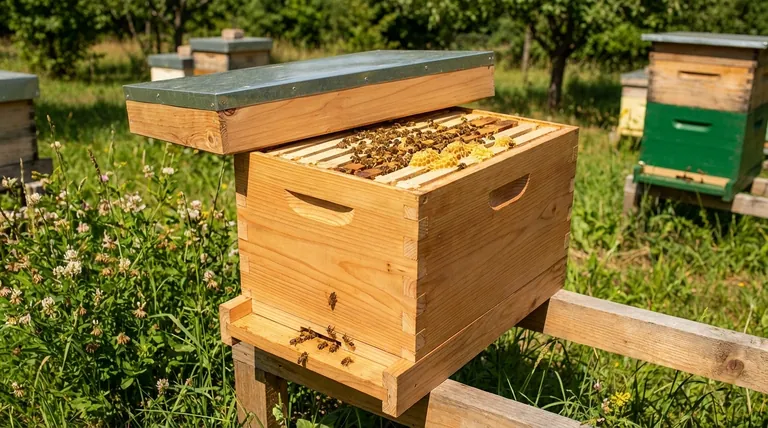
The Anatomy of a Head Start
To understand the advantage, you must first understand what you are actually getting. A nuc is a miniature, working version of a full-sized hive.
A Proven, Laying Queen
A nuc is built around a queen who is already mated, accepted by the colony, and actively laying eggs. This eliminates the single greatest point of failure for a new colony: queen acceptance.
With a package, the queen is shipped in a small cage and must be slowly introduced to a swarm of unrelated bees, a process that can sometimes fail.
Drawn Comb: The Hive's Foundation
A nuc includes frames of drawn beeswax comb. This is a massive advantage because producing wax is one of the most energy-intensive tasks for bees.
By providing drawn comb, you allow the colony to immediately focus its energy on raising new bees and foraging, rather than on construction.
Brood of All Stages
Those frames of comb will contain brood—eggs, larvae, and capped pupae. This ensures a continuous cycle of new bees hatching from day one.
A package colony must wait approximately three weeks after the queen begins laying for the first new worker bees to emerge, creating a vulnerable population gap.
A Cohesive, Local Workforce
The bees in a nuc are a family. They are already organized, acclimated to their queen, and working together efficiently.
Because nucs are typically produced by local beekeepers, the bees are also genetically adapted to your specific climate and foraging conditions, reducing stress and improving their chances of thriving.
Understanding the Trade-offs
While a nucleus hive offers a powerful start, it is essential to consider the complete picture. Objectivity requires acknowledging the downsides.
The Cost Factor
Nucleus hives are significantly more expensive than packages. You are paying a premium for the beekeeper's time, effort, and resources used to establish the colony before you receive it.
The Risk of Inheriting Problems
Because you are receiving established comb, you can also inherit any pests or diseases present in the seller's apiary, such as Varroa mites or brood diseases.
It is absolutely critical to purchase nucs only from highly reputable, transparent, and trusted local suppliers to mitigate this risk.
Availability and Logistics
Nucs are less suitable for long-distance shipping and are typically sold locally. Their availability is often more limited than bee packages, which can be shipped across the country in large quantities.
Making the Right Choice for Your Apiary
Your decision should be based on a clear understanding of your goals, experience level, and tolerance for risk.
- If your primary focus is a successful first year and reducing risk: Choose a nucleus hive from a reputable local supplier, as it provides the most stable and forgiving start.
- If your primary focus is minimizing upfront cost and you are comfortable with more intensive early management: A package of bees can be a viable and economical option, provided you understand the challenges of queen introduction and initial colony buildup.
- If your primary focus is expanding an existing apiary quickly: Nucleus hives provide the fastest path to establishing strong, productive colonies that can contribute to your operation within the same season.
Understanding these core differences empowers you to invest not just in bees, but in the beekeeping experience that best aligns with your goals.
Summary Table:
| Feature | Nucleus Hive (Nuc) | Package of Bees |
|---|---|---|
| Queen Status | Mated, accepted, and laying | In cage, requires introduction |
| Comb | Drawn comb provided | Foundation only; bees must build wax |
| Brood | Eggs, larvae, and capped brood present | No brood initially |
| Colony State | Established, working mini-colony | Swarm of bees with no established structure |
| Time to Productivity | Faster (weeks ahead) | Slower (3+ weeks for first new bees) |
| Initial Cost | Higher | Lower |
| Risk Level | Lower (if from reputable source) | Higher (queen introduction failure, slower buildup) |
Ready to build a stronger, more productive apiary?
For commercial apiaries and distributors, choosing the right start for your colonies is critical for season-long success. HONESTBEE supplies the high-quality beekeeping equipment and supplies you need to support your nucleus hives and package bees, ensuring your operation runs smoothly and efficiently.
Let us help you maximize your investment. Contact our wholesale team today to discuss your apiary's needs and explore our full range of durable, reliable beekeeping solutions.
Visual Guide
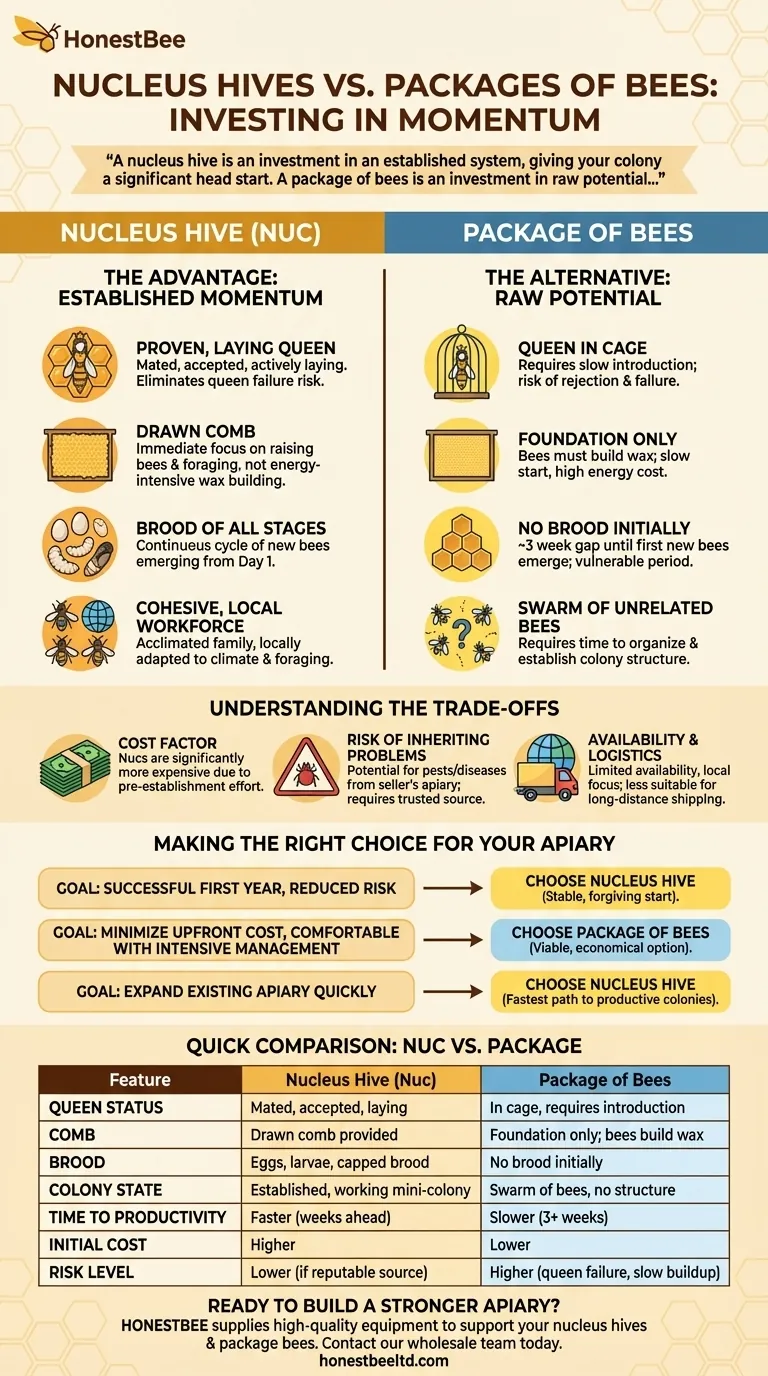
Related Products
- 5 Frame Wooden Nuc Box for Beekeeping
- HONESTBEE Professional Multi-Functional Hive Tool with Ergonomic Wood Handle
- HONESTBEE Professional Long Handled Hive Tool with Precision Cutting Blade
- HONESTBEE Advanced Ergonomic Stainless Steel Hive Tool for Beekeeping
- Multi-Function Plier-Style Frame Grip Hive Tool
People Also Ask
- What is a common feature of many 5-frame nuc boxes? The Integrated Feeder for Efficient Colony Growth
- What is the most common type of standard nuc? The 5-Frame Nuc Explained
- How should the nuc be installed in the apiary? Ensure Colony Success from Day One
- When can nucleus colonies (nucs) be created? Optimal Timing for Apiary Growth and Survival
- What frames should be moved into the queenless hive when requeening with a nuc? Ensure a Successful Queen Introduction

